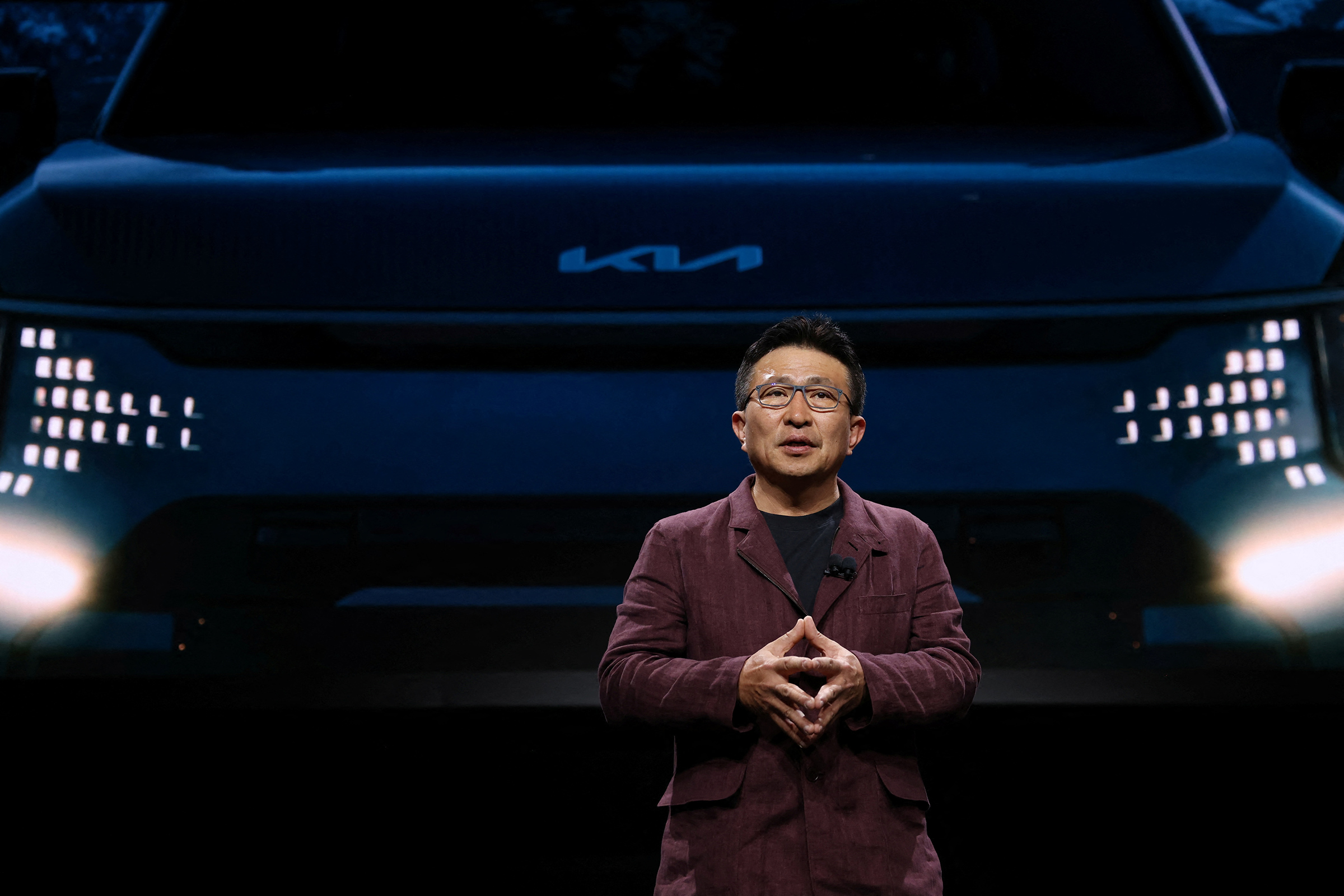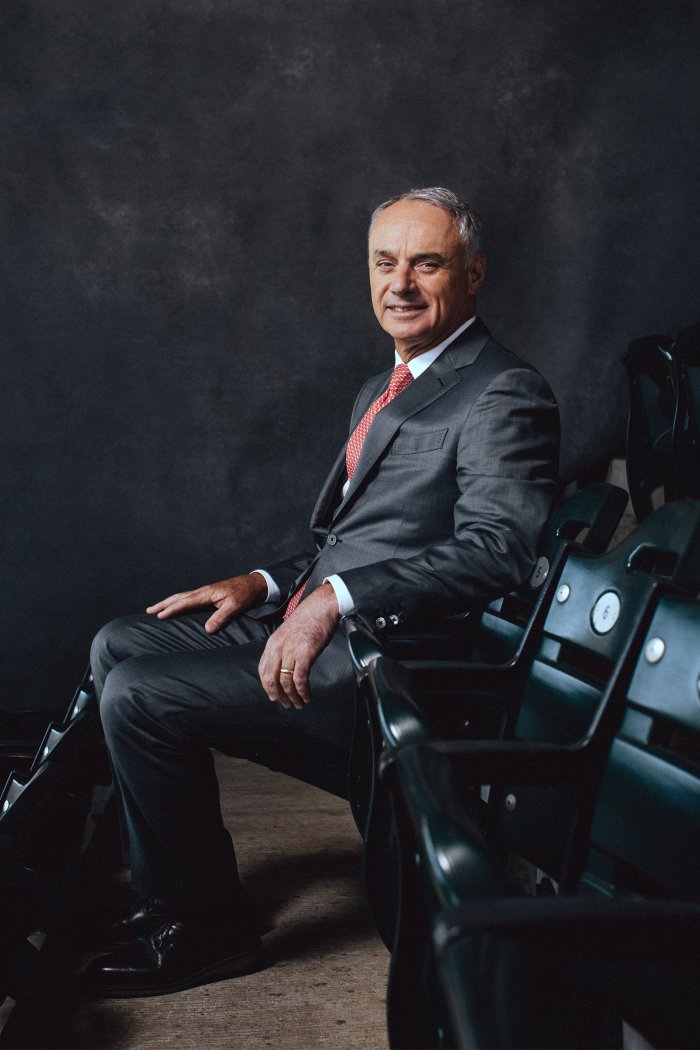Tesla holds pole position in U.S. electric vehicle (EV) sales. Among legacy automakers making the transition to zero emission driving, it’s all about who can be number two. In 2022, Kia America shed its reputation for inexpensive cars and hit a new annual sales record when it launched its first dedicated battery-only EV—the EV6 crossover—moving it into second place in U.S. EV sales for most of the year. “People are surprised when they get into a Kia vehicle because it’s not the Kia they remember,” says Kia America President and CEO SeungKyu (Sean) Yoon. Maybe that’s why Kia says that in 2022, 60% of its customers were new to the brand.
More from TIME
But requirements in last summer’s Inflation Reduction Act requiring EVs to be assembled in North America in order to qualify for tax credits have set the brand back. To stay in the race for U.S. EV dominance, Kia is planning to begin building its newest EV, the three-row EV9 SUV in West Point, Georgia, starting next year. Fifteen EV models are planned for Kia’s global lineup by 2027.
TIME spoke with Yoon about the company’s most recent moves, and its long term electrification ambitions.
(This interview has been edited and condensed for clarity.)

The EV transition is changing perceptions around different automakers and potentially offering room for reorientation. How do you think that people in the U.S. have seen Kia before the EV transition, and how do you want that to change?
Before EVs, I’d say that our focus was very much on the introduction of our rugged SUVs and the sporty segments. That was our brand strategy, and it has been well-received by the market, and we’ve been doing a great job with our [gasoline-powered] vehicles. But in terms of a transition in the EV world, actually we started our EV business even before EV6, a decade ago, and this gave us and our dealers valuable experience in the space. The EV6 is Kia’s new dedicated electric vehicle, which is something really new and different. Kia had one of the most recognized brands for quality and reliability, and with the EV6 Kia had the opportunity to combine all of those positive traits in beautifully designed and technologically advanced offerings, better to help us be pushing Kia in the United States. We had high expectations which were actually exceeded when the EV6 went on sale.
There have been new proposed emissions mandates in the U.S. that are likely to spur EV adoption, but there have also been the restrictions in the Inflation Reduction Act, which have made it clear that U.S. policymakers want the EV transition to be strongly centered on U.S. resources and U.S. jobs. As a foreign automaker, how are you dealing with all that?
In terms of EVs, inevitably the opportunity is really to localize everything. The U.S. is Kia’s most important global market for sales and production, and we are managing our business aggressively as we move toward all-electrics according to our consistent planet strategy. Kia has and continues to invest in the United States, with the EV9 production starting in West Point, Georgia, next year and the Kia EVs being built near Savannah, Georgia, starting the first half of 2025. We’d like to be one of the most respected leaders in the EV world, and in order to accomplish that target we are going to make all the necessary investments in the United States.
The IRA has negatively impacted our business. But thanks to the tax credit offered for leasing, I think that we are gradually overcoming the negative challenge and getting back to the targeted path. And once we start the production of EVs here in the U.S., our brand position will improve to be as competitive as any other [manufacturer] in the United States.
Which EV model do you think is ultimately going to be the most successful in the U.S.?
The most important vehicle in the United States, no doubt about it, is the EV9. The EV9 is actually the perfect example of what’s to come from Kia as the first three row mass market EV SUV. It will be available in showrooms in the later part of this year. It combines Kia’s proven success in building SUVs that customers love like the Telluride, with the design and technology leadership of EV6.
What do you think is the greatest challenge to EV adoption in the U.S.?
Actually, there is a unique element of the American car buying personality, according to my understanding. Americans love the freedom of the road. There’s a sense that they may want to load up their vehicle with the family, friends, and belongings and head out on new adventures at any time. Therefore, adoption of EVs will need to be aligned with this desire. Technology and charging times will continue to improve, and customers’ demand for EVs will grow. But we know that many existing EV owners are not satisfied with public charging stations and infrastructure. This is considering the fact that the vast majority of owners charge on a regular basis at home or place of work.
To achieve the goals set by the federal government, the most important thing is building up enough infrastructure, meaning a charging network and upgrading the grid. The [Biden Administration’s] EV sales goals, given the current industry situation, I predict it will be very challenging to everybody. To accomplish those very challenging goals, only developing very attractive EVs will not be enough. Grid upgrades and comfort in charging, as comfortable as with gasoline cars, all those infrastructure improvements will be very necessary to reach the targets.
A weekly newsletter featuring conversations with the world’s top CEOs, managers, and founders. Join the Leadership Brief.
- Cybersecurity Experts Are Sounding the Alarm on DOGE
- Meet the 2025 Women of the Year
- The Harsh Truth About Disability Inclusion
- Why Do More Young Adults Have Cancer?
- Colman Domingo Leads With Radical Love
- How to Get Better at Doing Things Alone
- Michelle Zauner Stares Down the Darkness




